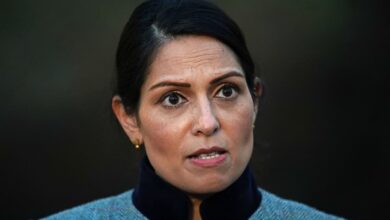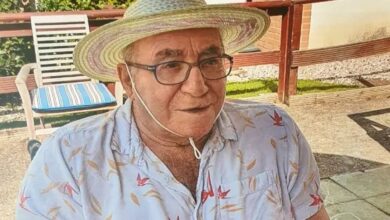‘We’re human beings too’: How a decade of the hostile environment has torn lives apart

It was on 25 May 2012 that, in an interview with the Daily Telegraph, Theresa May declared that her aim as home secretary “was to create here in Britain a really hostile environment for illegal migration”. In the decade since, under Ms May and her successors – Amber Rudd, Sajid Javid and Priti Patel – those two words, hostile environment, have been associated with a string of aggressive policies that have affected not only undocumented migrants but also those with the right to live and work in the UK.
The following year, vans emblazoned with “go home” prowled the streets, driving fear into the hearts of many.
Policies supposed to deny access to employment, housing, healthcare, bank accounts and more without correct documentation had devastating consequences for many including victims of the Windrush scandal.
The political crisis, made possible through the hostile environment policies, saw thousands of predominantly Black people stripped of their rights to live and work in Britain after wrongly being branded as illegal migrants. Numerous victims are still waiting to be compensated.
On the 10th anniversary of the term being used for the first time, The Independent has spoken with those who have been affected about what it’s like to live under this shadow of fear brought on by Britain’s hostile environment.
Junior*, 46, has been in UK for 22 years – most of that time undocumented. Originally from Ghana, Junior came to Britain to join family – helping care for his sister’s children in London – but the government would not extend his leave to remain, so he became undocumented in 2011 and thrust into uncertainty.
“Life has been terrible for a long time. I’ve been homeless for over a year now. There are other people where I’m living who have a variety of issues,” the father-of-three told The Independent.
“I’ve been struggling with depression and anxiety, with the onset of migraines which affects my ability to do anything at times.
“I’ve contemplated suicide. Sometimes I’ve felt so low to the point where I don’t care and can’t see a better alternative.”
Unemployed, Junior has been able to get by only with occasional help from his friends and family; he previously survived between odd jobs and cash-in-hand work on construction sites, which came to a halt during the Covid-19 pandemic.
Junior has children aged 16, 12 and 10, who are growing up in care in the absence of their UK-born mother. His lack of status means he has been unable to raise them himself.
“I have contact with my children and it’s not the right environment to bring young people to, even though the facility allows a few hours for visitors to come,” Junior said. “I don’t want to expose them to that atmosphere and how I’m struggling – so this means the only time we can spend together is outside.”
Over the years, he has lived with the constant fear of immigration raids; at one point, he was sleeping rough at the back of a Sainsburys supermarket.
Junior has tried to gain proper status at various points but applications fell through. He was finally granted leave to remain in November 2020, but is now classed as a “temporary” migrant, with limited leave to remain.
This means he will have to renew his visa every 2.5 years before he can get indefinite leave to remain in the UK or apply for citizenship. By this point he will be in his early fifties, and will have lived in the UK for more than half his life.
Priti Patel has taken a hardline approach to illegal migration
Junior has been able to derive a sense of hope, despite his adversity, through his voluntary role as a church warden and service to others, he says.
He currently sleeps within a support housing facility along with nine other people who have various complex needs and has started a health and social care diploma, while he also volunteers in a charity shop.
“I’ll be honest: faith wasn’t something that I was thinking about when I was at my lowest because, while my world was shattered by this battle with the Home Office, I sometimes thought that God should be able to solve things straight away,” he said.
“But I told myself that it’s good to help society because we’re all going through one form of hardship or another – I just hope that I can get on my feet, have custody of my children and build a better life, sooner rather than later.
Glenda Caesar was asked to take a selfie to prove her right to benefits





